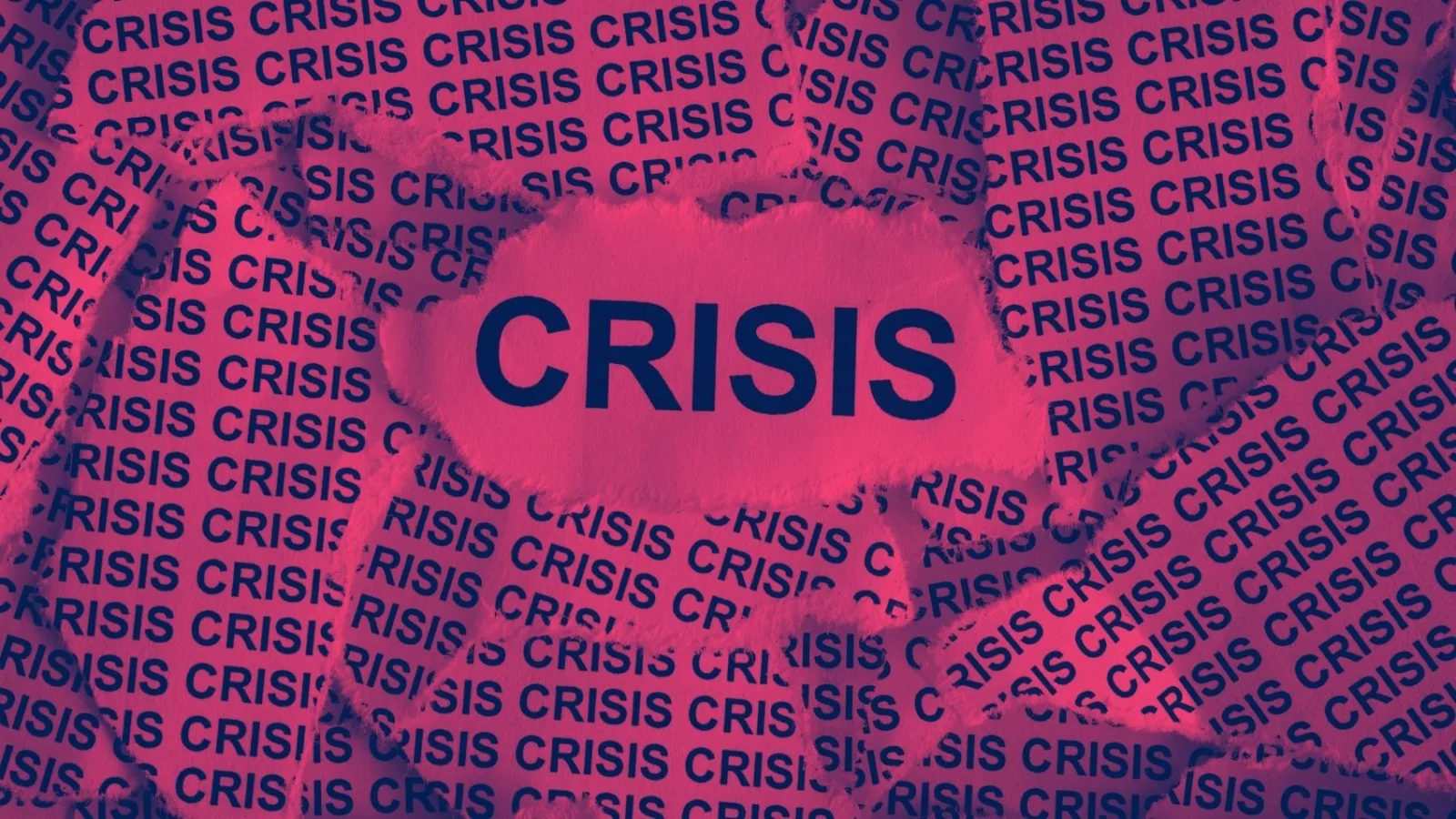

Welcome to the 15th (online) edition of the Crisis Communications Boot Camp, North America's leading event on crisis and reputation management!
This highly interactive Boot Camp will equip you to deal with any kind of crisis - whether caused by internal error, customer action, natural disasters, terrorism or political upheaval. Supported by case studies and examples from responses to events, the course will also explore the role of leadership in a crisis and developing a crisis communication response that has people at the heart of it.
With presentations by some of the world's leading PR pros, our interactive Boot Camp will cover the whole span of the crisis from preparing and laying the groundwork before it occurs, during the incident, and the aftermath, including the move to recovery. Our international panel of experts will guide you through each phase, providing details of what to consider, what should be done, and tips and checklists for improved responses.
At the end of the Boot Camp you will be able to:
10.00 Where’s the Reputation Risk for Your Organization in a Post-COVID World?
Taking stock of what’s changed and what’s the same after an unprecedented year for communicators. This session will focus on strategies and tools for identifying and mitigating reputation risk in 2021 and beyond.
Alex Armentano, Vice President, Edible Inc.
10.40 The Importance of Quick Transformation of Your Crisis Communications Strategy: Case Study by Massachusetts General Hospital
In this session Michael will share with you how Massachusetts General Hospital adapted its crisis communications strategy in the face of COVID-19, including integrating social media in their crisis communications plans. Michael will also share lessons learned from the 2013 Boston Bombings
Michael Morrison, Director Of Media Relations, Massachusetts General Hospital
11.20 Media Relations in the Age of Coronvirus and Other Natural or Manmade Disasters
When a major disaster hits, whether its COVID-19 or another event that puts people, property and businesses in peril, it's often difficult to understand the best path forward to approaching the media. Although companies may have information or announcements that can benefit the public, there is a sensitive line between providing helpful and valuable information and being seen as trying to profit on the back of a tragedy. It's important to understand when, how and with what type of information to approach the media as well as employees, customers, and other stakeholders. In this session, we'll dissect the current media climate and help communicators evaluate how and when to approach the media with crisis-related, and non-crisis related messages to ensure a receptive audience and productive approach.
Sandra Fathi, Chief Strategy Officer, Grergory FCA
12.00 Lunch for Speakers and Delegates
13.00 How to Protect Your Organization's Reputation in an Age of Fake News
In a society where anything can be said, organizations are facing an uphill battle to prove that their communication is credible.
Emma will share with you how to create a crisis communications plan that includes fake news, listen online for emerging issues, engage people who are important to you, paint a counter narrative rooted in facts and plan for various scenarios.
Emma Daly, Communications Director, Human Rights Watch
13.40 From COVID to Chaos: Effective Teams and Plans for Weathering Crisis Communications Storms
Lydia formerly served as Chief Communications Strategist for the City Atlanta, Georgia mayor Keisha Lance Bottoms. Shortly after joining the City, Lydia was faced with managing the Mayor’s communications response to the COVID-19 pandemic, racial justice demonstrations and a highly charged presidential and U.S. Senate election cycle. Lydia’s prior experience leading communication initiatives for the White House during President Clinton and President Obama’s administrations, a former US member of Congress, federal agencies and Washington, DC, and Atlanta mayors, equipped her with the tools needed to meet Atlanta’s challenges. She has led national communications strategies on healthcare reform, mental health, racial equity, and financial education, and for national health crises from the Ebola and Zika virus outbreaks to the U.S. City of Flint, Michigan water lead contamination.
During this session, Lydia will share best practices for building effective Communications teams and plans to help you survive during and thrive before and after a crisis.
Attendees will gain insights on how the best communications defense is built upon a great offense and approaches to determining the effectiveness and preparedness of your communication team and plans.
Lydia Sermons, Vice President of Strategic Positioning and Alignment, PAI (www.pai.org)
14.20 Networking and Refreshment Break
14.40 Recovering After a Crisis: Strategies to Heal Brand Reputation
Social media conversations around a specific brand crisis almost always subside...eventually. In this closing crisis session Brandi will share her recommendations for when and how to return to normal messaging after a crisis. Though no two crises are exactly alike, we’ll explain how to train yourself, and your team, for the shift from crisis management to reputational repair.
Brandi Boatner, Manager, Digital Advocacy Communications, IBM
15.20 Understand the Role of Data in Crisis Planning
“Only 30% of marketers and PR pros say they conduct a risk assessment of potential threats to their brand’s reputation about once per year.” - Crisp and PR News
This session will discuss how to use data effectively. It is not just about uncovering what happened “after” a crisis, it is about being prepared before the crisis, being able to make real-time decisions during the crisis, digesting what to takeaway as lessons for the next crisis, and how to understanding what the long-term impact is. This session will focus on a different way of thinking about data and provide clear recommendations on how to use data for your next crisis situation.
Nicole Moreo, Senior Vice President, Analytics, Ketchum
16.00 End of Day One
10.00 - 16.00 Full Day Crisis Communications Workshop with Donald Steel, International crisis communications expert and Former Chief Communications Adviser at BBC: Post-COVID Crisis Communications: The Most Importance Principles for Crisis Response in the Post-Coronavirus Reality
COVID-19 has completely changed the rules of crisis communications. Delivered by Donald Steel, one of Europe’s leading communications experts, this interactive workshop will cover the entire crisis communications process, from building your crisis communications playbook, preparing your community in advance, addressing misinformation, and applying the right tone to rebuilding and maintaining your organization’s reputation in a fast-paced world.
Part 1: Spotting the Crisis
The first part of the workshop will cover risk identification, the differences and similarities of operational and reputational risks, creating a risk management framework for communication, developing a risk matrix and using the information to be crisis ready.
Part 2:Session 2: Developing a Crisis Communications Plan
The session will include what should a crisis communication plan cover, the principles of crisis communication, building the plan into organisational processes, stakeholder management and will include examples of best practice.
Part 3: When and How to Implement a Crisis Communications Plan
The session will cover how to test and exercise your crisis communication plan, how frequently you should refresh it and how to develop it. It will look at personal resilience, focusing your attention on the people affected and managing the consequences.
Part 4:Building a Strong Recovery
The session will look at when is the right time to move to recovery, how to balance managing the crisis and developing the recovery, and the 4 R's of recovery and what they mean for communicators. It will cover how to identify and prepare for trigger points and building for the future.
This program can also be delivered as a tailored in-house training for your organization. We adapt the content to your industry, objectives, and level of maturity, focusing on real challenges your teams face and the decisions they need to make. In-house formats allow your people to align on a shared approach, work through relevant scenarios, and build skills they can apply immediately.
If you’re exploring an in-house option, tell us a bit about your team, priorities, and timing, and we’ll recommend the right format.
Contact us about in-house training